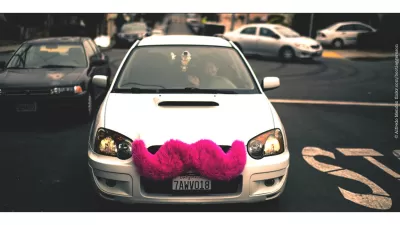New York Attorney General Eric T. Schneiderman penned an op-ed for the New York Times that specifically calls out Airbnb and Uber—two companies at the forefront of calls to regulate the emerging sharing economy.
In a recent op-ed for the New York Times, New York Attorney General Eric T. Schneiderman makes his opinion perfectly clear about whether regulation should apply to companies, such as Airbnb and Uber, enabled by mobile and online software: “Amazingly, many of these companies claim that the fact that their goods and services are provided online somehow makes them immune from regulation.”
He specifically takes the two aforementioned companies to task:
“Airbnb ‘hosts’ rent out apartments every day in violation of this law,” says Schneiderman. “The most straightforward solution would be for Airbnb to simply prevent illegal transactions. But when my office reached out to Airbnb, the company rejected the idea of self-policing out of hand and refused to provide data that would give us a handle on the scope of the problem.”
Although he acknowledges some efforts by Uber to meet his office halfway, he also states that “Uber may also have run afoul of New York State laws against price gouging, which do serve the public interest. In the last year, in bad weather, Uber charged New Yorkers as much as eight times the company’s base price. We are investigating whether this is prohibited by the same laws under which I’ve sued gas stations that gouged motorists during Hurricane Sandy.”
FULL STORY: Taming the Digital Wild West

Maui's Vacation Rental Debate Turns Ugly
Verbal attacks, misinformation campaigns and fistfights plague a high-stakes debate to convert thousands of vacation rentals into long-term housing.

Planetizen Federal Action Tracker
A weekly monitor of how Trump’s orders and actions are impacting planners and planning in America.

In Urban Planning, AI Prompting Could be the New Design Thinking
Creativity has long been key to great urban design. What if we see AI as our new creative partner?

Massachusetts Budget Helps Close MBTA Budget Gap
The budget signed by Gov. Maura Healey includes $470 million in MBTA funding for the next fiscal year.

Milwaukee Launches Vision Zero Plan
Seven years after the city signed its Complete Streets Policy, the city is doubling down on its efforts to eliminate traffic deaths.

Portland Raises Parking Fees to Pay for Street Maintenance
The city is struggling to bridge a massive budget gap at the Bureau of Transportation, which largely depleted its reserves during the Civd-19 pandemic.
Urban Design for Planners 1: Software Tools
This six-course series explores essential urban design concepts using open source software and equips planners with the tools they need to participate fully in the urban design process.
Planning for Universal Design
Learn the tools for implementing Universal Design in planning regulations.
Gallatin County Department of Planning & Community Development
Heyer Gruel & Associates PA
JM Goldson LLC
City of Camden Redevelopment Agency
City of Astoria
Transportation Research & Education Center (TREC) at Portland State University
Jefferson Parish Government
Camden Redevelopment Agency
City of Claremont



























